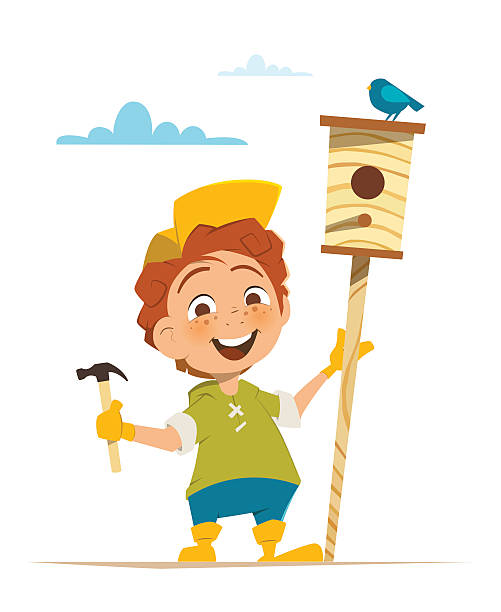Paul couldn’t wait to get home from school. He hated school. Not the learning. He loved watching things blow up in science classes and cutting into frogs. But he hated when the teachers told him how to do his experiments. Sure, he was seven, but he knew stuff.
Paul felt like no one listened to him. At home, his mom decided what he should eat and when. But he hated his dad most because he was cold and bossy, and if Paul didn’t do what his dad expected, he’d get it good. And he got punished a lot because most of the time, Paul didn’t even know what his dad wanted. His baby brother was his only saving grace because the little brat sometimes kept his parents busy.
The daisy field was Paul’s favorite place. As soon as he had a chance, he would burst through the kitchen door and run free – arms stretched out to his sides, just above the shoulders, as he pretended to be an airplane flying across the ocean.
It didn’t matter if it was in the blistering heat or deep winters, as long as he was out of that house. If he was lucky, he would find dead animals and bury them. He hated thinking they died alone. Once, he got lucky and found a bird squawking in pain. Its wing was broken. Paul picked it up and hurried it into the house. His mother ran to help. His father was disgusted that an “almost dead” bird was in their kitchen.
“How could you be so stupid to bring that disease-ridden thing here?” Paul’s father said. “You can get your brother sick.”
Paul felt the jab against his chest. He thought his father would be proud because he was doing a good thing without being told. He ran into the field, leaving the bird on the kitchen table. Tears streamed down his cheeks, and he swore he’d never do anything nice again.
The bird lived, and Paul forgot how disappointed his father sounded. But every time he thought of doing something, he worried his father would be disappointed again. His dad was happy and proud when he did well in school but didn’t seem to care if he wrote a poem or built a wooden car. So even though he hated going to school, seeing his father so happy about his grades made him excel, and soon he stopped writing poems and building cars.
Paul became a vet.
“You’re not a real doctor,” his dad said.
And Paul felt that jab again. He wanted to run into the daisy fields again, but he couldn’t. He’s an adult with a job, a woman waiting at home, children in the future, and patients who depend on him. So, he smiled and tried to comfort himself by reminding himself that he was doing something good and something he loved.
He went home and told his wife.
“I’m sorry he said that, honey. You are an amazing man.” She hugs him, and he feels safe and loved again. But something else happens. He gets scared.
He wonders what if she begins to think he’s not good enough. What if she knows he’s scared? What if she sees his flaws? What if she thinks he’s a failure and a fraud? He worries she will leave if she knows. So, he reminds himself to be careful. That fear made him walk away from her.
She watches him, knowing he’s in his dark place again. She follows him, kisses his forehead, and says, “I love you – the good stuff and the sides you struggle with.”
Note:
Everyone has had something happen that made them feel like they are not good enough in one area or the other. Trauma creates who you are, and yes, it takes away. If you’re aware that you suffered from trauma, the best you can do is keep pushing through the fear of being abandoned and rejected. Not everyone will choose to see the value you add. If you’re the partner or friend of a person who suffers too, remember that a person who is afraid of trusting needs a reason to trust again. They need consistency and a reminder that you’re right there.
A person who doesn’t know they need to heal can destroy you and pull you into the darkness with them. But some are kind and good, and they try, and like Olaf says, “some people are worth melting for.”
Note 2: This story is fiction. Paul showed up in my head while I was taking my morning walk.






